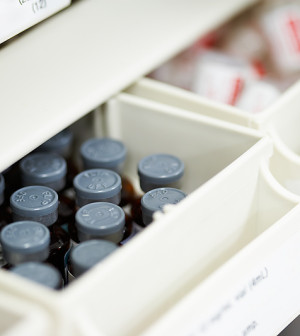- The Best Time of Day to Drink Bone Broth to Maximize Health Benefits
- 8 Ways to Increase Dopamine Naturally
- 7 Best Breads for Maintaining Stable Blood Sugar
- Gelatin vs. Collagen: Which is Best for Skin, Nails, and Joints?
- The Long-Term Effects of Daily Turmeric Supplements on Liver Health
- Could Your Grocery Store Meat Be Causing Recurring UTIs?
- Are You Making This Expensive Thermostat Error This Winter?
- Recognizing the Signs of Hypothyroidism
- 10 Strategies to Overcome Insomnia
- Could Artificial Sweeteners Be Aging the Brain Faster?
Antipsychotic Drugs Will Become More Affordable, Study Predicts


Patent expirations on several leading antipsychotic drugs could save Medicaid billions of dollars a year as the medications become available in cheaper generic versions, a new study finds.
Patients covered by Medicaid — the publicly funded insurance program for the poor — account for 70 to 80 percent of all antipsychotic prescriptions in the United States, the researchers said.
The lower costs of “second-generation” antipsychotics, such as Abilify and Seroquel, could prompt Medicaid to lift restrictions on access to the drugs, the study authors predicted.
The drugs are used to treat mental illnesses such as schizophrenia and bipolar disorder.
“Mental health medications are among the most prescribed drugs in Medicaid, and many of these medications have recently become available as generics or soon will be,” said Eric Slade, an economist and associate professor in the psychiatry department at the University of Maryland School of Medicine.
“Our predictions suggest that this change will result in a substantial financial windfall to states and to the federal government,” he added.
In 2011, Medicaid spent more than $3.6 billion on so-called second-generation antipsychotic drugs, a category of drugs introduced in the 1990s. Five brand-name drugs — Abilify (aripiprazole), Seroquel (quetiapine), Zyprexa (olanzapine), Geodon (ziprasidone), and Invega (paliperidone) — accounted for 90 percent, or $3.3 billion, of that spending, the study found.
Using forecasting models, the research team estimated that Medicaid’s annual spending on antipsychotic drugs will fall by nearly 50 percent, or $1.8 billion, by 2016. Spending should drop another $2.8 billion by 2019, they predicted.
The study was recently published in the journal Psychiatric Services.
More information
The U.S. National Institute of Mental Health has more about mental health medications.
Source: HealthDay
Copyright © 2026 HealthDay. All rights reserved.










